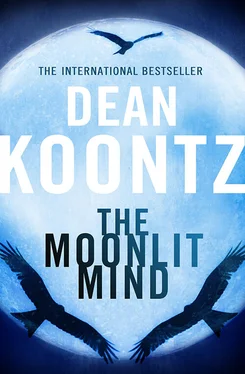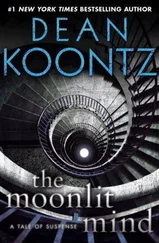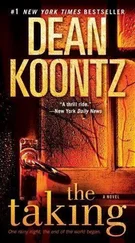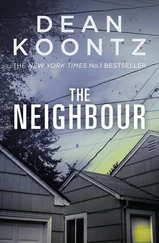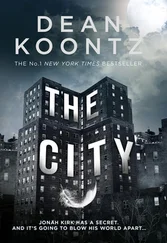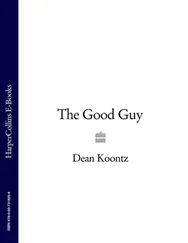Crispin, Harley, and Mirabell eat only what they like. Chef Faunus and Cook Merripen cater to their every desire.
They go to bed only when they wish.
Each rises to his or her own clock.
Mr. Mordred entertains. Nanny Sayo attends the children’s needs.
The world beyond the great house has been fading from Crispin’s mind. Sometimes, passing a window, he is surprised to see the city, the Pendleton looming across the street.
Shortly before midnight on July 25, having been in bed less than two hours, Crispin swims up from a troubled sleep. Half awake, he sees two shadowy figures in his room, the place brightened only by the hallway light that seeps in through the door, which is ajar no more than two inches.
The visitors are talking softly to each other. One voice is that of Giles, whom the children now call Father. The other belongs to Jardena, Giles’s mother.
Jardena looks old enough to be her son’s great-grandmother. She keeps almost entirely to her suite of rooms on the third floor. She is withered, her face as drawn as a sun-dried apple, but her eyes as lustrous and purple as wet grapes. She’s seldom seen, almost always at a distance, at the farther junction of hallways, floating by in one of her long dark dresses.
Crispin hears little of what they say, though it seems that tomorrow is some kind of memorial or feast day. Before he slides away into sleep once more, the boy hears the names Saint Anne and Saint Joachim.
When he wakes in the morning, Crispin is not sure that the visitors to his room were real. More likely, they were part of his otherwise unremembered dream.
In the coming night, something happens to Mirabell.
Halloween, three years and three months later …
The leash jerks from the boy’s hand, and he falls.
The previously gentle dog, never having growled, does not growl now, but bites. He nips at the ankle of the male marionette in the white suit, who cries out and lets go of Crispin’s jacket.
The boy sprints after the dog, away from the nightclub called Narcissus. They plunge into the street, dodging cars as brakes shriek and horns blare.
From the comparative safety of the next sidewalk, Crispin looks back across the street and sees the man on one knee, examining his bitten ankle. The woman in white is talking on a cell phone.
Crispin snatches up the dropped leash, and the dog sets off with purpose. He and Harley weave between the pedestrians, half of whom are costumed for Halloween, half not.
When the hunters are hot on the scent, some places are safer than others. Certain churches, not all, seem to foil these particular pursuers. Sanctuary can be found in that kind of church—whether Baptist or otherwise—in which, on Sundays, rollicking gospel songs are sung with gusto and booming piano. Churches in which Latin is sometimes spoken, candles are lit for the intention of the dead, incense is sometimes burned, and fonts of holy water stand at the entrances—those are also secure. Synagogues are good refuges, too.
Right now, he and Harley are a few dangerous blocks from any such a safe haven.
Reverend Eddie Nordlaw, who founded the Crusade for Happiness and who appears Sundays on his TV show, The Wide Eye of the Needle , preaches that God wants everyone to be rich. He operates from his megachurch, the Rapture Temple, on Joss Street, which is not far from here.
But Crispin has learned the hard way that the Rapture Temple offers no more protection against these enemies than does a shopping mall. Or a police station.
On the day of his mother’s wedding, when he watched from a high window, one of the honored guests whom he saw arriving was the chief of police.
Pedestrians admonish and curse Crispin as he pounds pell-mell after the bolting dog, holding fast to the leash and trying not to be jerked off his feet.
Water in motion can also screen Crispin from Giles Gregorio and everyone like him. A rushing stream, if it is wide enough, thwarts them. Even if the boy stands on the farther bank from them, in plain sight, they seem unable to see him and eventually give up the search.
In Statler Park, a man-made waterfall tumbles into a fake-rock pond. A narrow pathway allows you to walk behind the falls, where there is a grotto. In that sequestered hollow, you can look out toward the park, through the cascades. The hunters must know of that retreat; but Crispin has several times been safe there while they stalked him through the rest of the grounds.
Rushing torrents seem not only to deny them his scent but also to confuse their senses, as though the swish and burble of the water is not merely sound but also a language, as if Nature is speaking a dispensation to spare him from their homicidal fury.
He and the dog are at this moment far from Statler Park and no nearer any rushing stream. Their best hope is Memorial Plaza, two acres of granite cobblestones, raised planters full of flowers, and benches on which people sit to read the morning paper, to have a bite of lunch, to feed the pigeons, and even to contemplate the sacrifices made by soldiers, sailors, airmen, and marines who have died to keep them free.
Harley knows the city as well as Crispin does. Soon cobblestones are underfoot. At this hour, the lamplit plaza is deserted because, for everyone except Crispin and his dog, such places are dangerous after dark in this part of town.
At the center of Memorial Plaza, on a granite plinth twelve feet in diameter, stand three larger-than-lifesize bronze figures: marines in battle gear, one of them wounded and leaning on another, the third carrying Old Glory as if defiantly announcing their location to an adversary they do not fear.
These days, the city is operating with such an enormous budget deficit that the plaza lamps and the spotlights on the statuary are extinguished at nine o’clock to save electricity. All is dark but for the lunar lamp.
The sounds of celebrations ring in from surrounding streets.
Harley springs onto the plinth, and Crispin scrambles after him. The slab of granite is carved to represent a stony outcrop, as if the bronze marines stand atop a battle-blasted hill. Among those sculpted rocks is a place where a boy and a dog can nestle.
They are less than half concealed. Even without the spotlights that used to wash the statues, the boy and the dog should be visible to anyone passing by, for the moon is full.
Yet Crispin is confident that they are safe. They are safe in the company of these bronze heroes.
The woman in white, black strings dangling, rushes into the plaza. Moonglow powders her marionette face, and her blood-red lips look black.
While the woman surveys her surroundings, the boy half believes that he can hear her doll eyes click-click-clicking as she blinks, as if she is in fact an animated puppet.
Her gaze passes over him from right to left, then slowly left to right.…
She doesn’t hesitate or come closer. She turns and moves away toward another part of the plaza.
Proximity to certain symbols and images can make boy and dog invisible to this woman’s kind, as surely as does swift-moving water. Statues honoring acts of courage and valor. Certain religious figures carved or cast life-size or larger. The immense mural of Aleksandr Solzhenitsyn on the front wall of the Russian-American Community Center. The huge cast medallion of America’s sixteenth president embedded above the main entrance of Lincoln Bank on Main Street.
A cross or a serviceman’s medal worn around the neck will not provide invisibility. The symbol needs to be of substantial size to be effective, as if the noble efforts and the determination of those who created and erected it are as important as the symbol or image itself.
The dog-bitten man in the white suit appears, limping. Soon there are five of them, though the others are not costumed, prowling the plaza and its immediate surroundings.
Читать дальше
